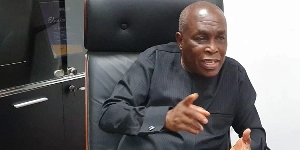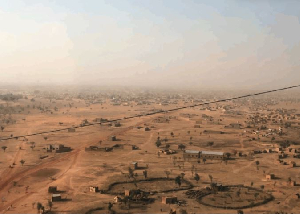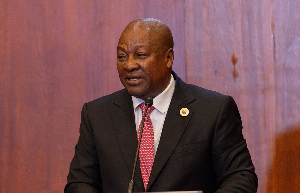General News of Monday, 23 September 2019
Source: www.ghanaweb.com
A timeline of Ghana’s political journey under Kwame Nkrumah
Touted as one of the best presidents Ghana has ever had, Osagyefo Dr Kwame Nkrumah was the leading figure in the fight of the country's independence.
He led the country between 1957 and 1960 as a prime minister, and between 1960 and 1966 as president.
The leadership of Nkrumah was characterised by major events which are still remembered today, Ghanaweb brings you a chronology of some of the major events that occurred from the beginning to the end of Nkrumah’s reign.
1957
After Ghana achieved its independence from Britain on March 6, 1957, making Kwame Nkrumah the prime minister, three individuals were killed during post-independence riots in Alavanyo in the same month.
Dozens were injured during clashes between rival tribal groups in Accra on August 20, 1957.
The government deported two Muslim leaders, Adamu Moshie and Adamu Gao, from the country on September 5, 1957.
The United Party (UP) was established with the merger of the National Liberation Movement (NLM), Northern People’s Party (NPP), and other political parties, in October 1957.
The government declared a state-of-emergency in Kumasi on December 30, 1957. Some 5,000 individuals were displaced from the city of Kumasi in the Ashanti region as a result of political violence following independence.
1958
Municipal elections were held in Kumasi on February 12, 1958, and the CPP won 17 out of 24 seats on the municipal council.
The Preventive Detention Act (PDA) was approved by the National Assembly on July 18, 1958.
1960
A plebiscite on the issue of Ghana becoming a republic was held on April 27, 1960, and some 88 percent of the voters supported a republic. Prime Minister Kwame Nkrumah of the CPP was elected president with 89 percent of the vote on April 27, 1960, and he was inaugurated as president on July 1, 1960. Joseph Boakye (J. B.) Danquah of the United Party (UP) won 11 percent of the vote for president. The Republic of Ghana was formally proclaimed on July 1, 1960.
1961
Two bombs exploded in Accra on July 7, 1961.
Several thousand workers, including railway and port workers, went on strike from September 4 to September 22, 1961.
President Kwame Nkrumah asked six members of his government, including the Minister of Agriculture and the Minister of Health, to resign from their positions on September 28, 1961.
J. B. Danquah and 63 other opponents of President Nkrumah were arrested and detained under the PDA on October 3, 1961.
1962
J. B. Danquah was released from detention on June 22, 1962.
President Nkrumah survived a bomb attack near the village of Kulungungu on August 1, 1962, which resulted in the deaths or wounding of several school children.
One individual was killed in a bombing near the Flagstaff House in Accra on September 9, 1962.
Several individuals, including nine school children, were killed in a series of bombings in Accra on September 18-22, 1962.
President Nkrumah declared a state-of-emergency in Accra and Tema on September 22, 1962.
1963
More than 20 individuals were killed in a bombing at a CPP rally in Accra on January 11, 1963.
1964
President Nkrumah survived an attempted assassination in Accra on January 1, 1964, resulting in the death of a security guard.
Opposition leader, J. B. Danquah, was arrested and imprisoned in Nsawam Prison on January 8, 1964.
Some 99 percent of voters approved a one-party political system in a referendum held on January 31, 1964.
1965
Opposition leader, J. B. Danquah, died from a heart attack in Nsawam Prison on February 4, 1965.
President Nkrumah dissolved the National Assembly on May 25, 1965. Legislative elections were held on June 9, 1965, and the CPP won 198 out of 198 seats in the National Assembly.
President Nkrumah was re-elected without opposition by the National Assembly on June 10, 1965.
1966
President Nkrumah was overthrown in a military rebellion led by General Joseph Ankrah on February 24, 1966, resulting in the deaths of some 27 individuals.
The eight-member National Liberation Council (NLC) headed by General Ankrah took control of the government on February 25, 1966.
This timeline was compiled by the Political Science Department of the University of Central Arkansas, U.S.A.
Entertainment











